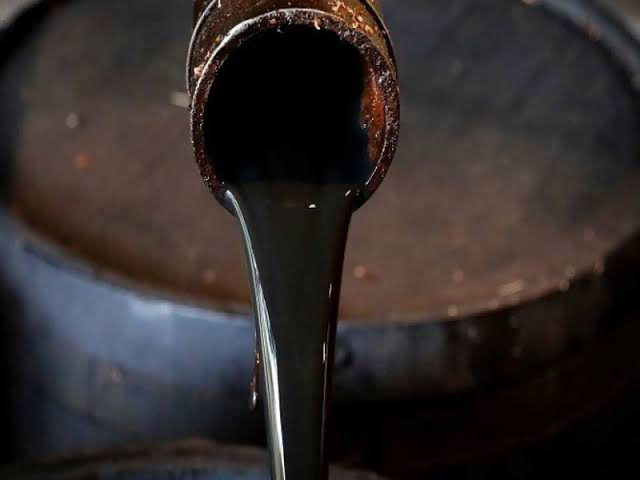Ghana, once hailed as a rising star in Africa’s oil industry, has seen its fortunes dwindle in the past year as global oil prices collapsed and the coronavirus pandemic hit demand. The West African nation, which became a major oil producer in 2010, reported a sharp drop in its oil revenue for the second half of 2023, according to the latest report from the Bank of Ghana.
The report, released on Monday, showed that Ghana received $521 million into its Petroleum Holding Fund (PHF) for the period between July and December 2023, down from $696.82 million in the same period in 2022. This represents a 25.2% decrease in the country’s earnings from crude oil exports and production.
The PHF is a special account that receives all petroleum revenues from Ghana’s oil fields and allocates them to various funds, such as the Ghana Stabilization Fund (GSF), the Ghana Heritage Fund (GHF), and the Annual Budget Funding Amount (ABFA). The GSF is a buffer fund that provides budgetary support in times of oil price volatility, while the GHF is a sovereign wealth fund that saves for future generations. The ABFA is the portion of the oil revenue that is used to finance the national budget.
According to the report, the main factors that contributed to the decline in Ghana’s oil revenue were the lower crude oil prices and the reduced liftings by the Ghana Group, which comprises the Ghana National Petroleum Corporation (GNPC) and the government. The average price of Ghana’s crude oil in the second half of 2023 was $40.69 per barrel, compared to $63.10 per barrel in the same period in 2022. The Ghana Group lifted 3.9 million barrels of crude oil in the second half of 2023, down from 4.8 million barrels in the same period in 2022.
The report also revealed that the country received $319 million from crude oil liftings, $198 million from corporate taxes paid by the oil companies operating in Ghana, $3.3 million from interest income, and $112,082 from surface rentals. The PHF transferred $159 million to the GSF, $68 million to the GHF, and $294 million to the ABFA.
Ghana’s oil sector has been struggling to cope with the challenges posed by the COVID-19 pandemic, which has disrupted global supply chains and reduced oil demand. The country’s oil production also faced technical issues, such as gas compressor breakdowns and pipeline vandalism, that affected its output and revenue.
Ghana’s oil woes are not unique, as many other oil-producing countries in Africa and beyond have suffered similar setbacks due to the pandemic and the oil price crash. According to the International Monetary Fund (IMF), sub-Saharan Africa’s oil exporters are expected to see their fiscal revenues decline by 2.8% of GDP in 2023, while their current account deficits widen by 3.1% of GDP.
The IMF has urged oil-dependent countries to diversify their economies and adopt prudent fiscal policies to mitigate the impact of the oil shock and ensure debt sustainability. The fund has also provided emergency financing and debt relief to several African countries, including Ghana, to help them cope with the crisis.
Ghana, which is also a major producer of gold and cocoa, has been praised for its democratic governance and economic reforms in recent years. The country achieved lower-middle-income status in 2010 and aspires to become a high-income country by 2057. However, the oil slump and the pandemic have exposed the country’s vulnerabilities and highlighted the need for more structural transformation and social protection.
Source: GhanaWeb



